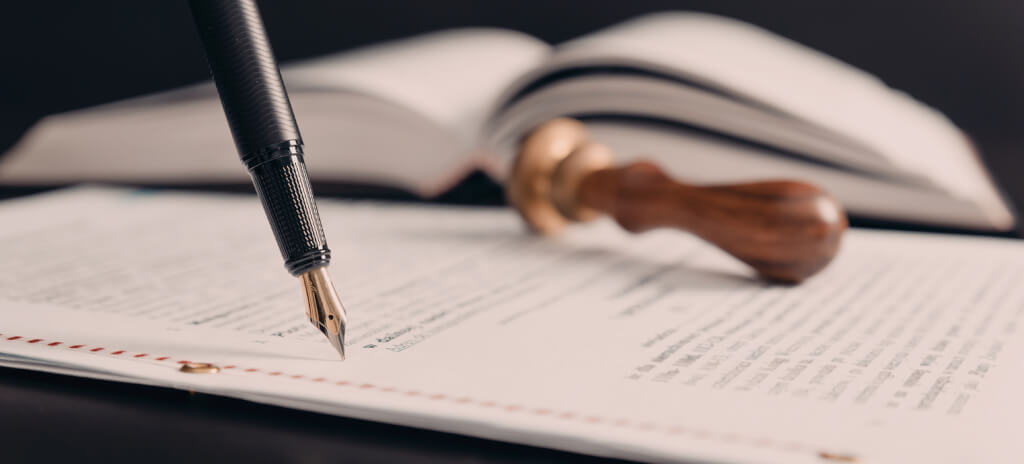Major Russian bank ends up in scandal in Ukraine over a local oligarch

Bank sector in Ukraine has been bouncing for the last couple of year. The National Bank announced cleansing and closed down about 40% of financial institutions. The largest bank in the country, Privatbank, owned by Swiss and Dnipropetrovsk oligarch Ihor Kolomoiskyi, has been nationalised. Ukraine implemented sanctions against Ukrainian subsidiaries of Russia’s Sberbank, VTB, and Vneshekonombank, and they were put up for sale.
Prominvestbank is one of these subsidiary companies, owned by Russian Vneshekonombank, and one of the largest banks in Ukraine. Recently, the owner and president of DCH Oleksandr Yaroslavskyi announced his desire to purchase the institution. His statement caused a stir of expert discussions in media. Analysts delved into real possibilities of the businessman to obtain this bank, as well as the obstacles that might prevent the Kharkiv oligarch from buying the financial institution. Experts also speak up of hidden motives behind Yaroslavskyi’s desire to own Prominvest, offering examples of asset-grabbing schemes that had been implemented in recent past.
ForumDaily collected experts’ opinion throughout various media, which shed light on one of the most discussed deals, as well as the stance of Oleksandr Yaroslavskyi himself.
Reputation tail
Executive director of POLITCONSULTANT.org, Mykola Volhov told Apostroph that negative reputation trail will probably prevent Yaroslavskyi from being a candidate to buy Prominvestbank. “Investor Oleksandr Yaroslavskyi has problems with his business reputation and financial standing. Back during Yanukovych’s tenure, he was the richest resident of Kharkiv. When he was selling his assets, Yaroslavskyi sold Azot plant in Cherkasy to Firtash, and Metalist FC and an arena that had been modernised with state finds to host Euro 2012 football championship, to Kurchenko. Back in 2014, he got rid of his share in XXI Vek development company, the expert said.
Volhov added that Yaroslavskyi’s earlier business activities had harmed Ukraine, and given the businessman’s ties with Russia, he is an unlikely candidate to be able to buy Prominvestbank.
“Another high-profile subject is criminal cases related to experiments with Kharkiv Tractor Plant. The plant was preparing for subsequent dismantlement and export to Russia of equipment from casting shops», the expert continues. “They prepared technical and engineering documents for the plant’s products to take them abroad. They failed to take out the plant thanks to SBU. From March to April 2016, four searches were conducted in the Kharkiv Tractor Plant which resulted in arrest of the company’s accounts and property».
“The Defense Ministry says the plant was a monopolist producer of torsion bars for track machines in Ukraine. A halt in production would pose a threat to the country’s security. DCH Group owner Oleksandr Yaroslavskyi acquired control stock in the plant from structures controlled by Russian oligarch Oleg Deripaska, who is also a godfather to one of Yaroslavskyi’s children. The deal was called an ‘image reshuffle’ back then: the plant had been allegedly sold to a Ukrainian, but at the same time Russian oligarch Deripaska retained control over it,” Volhov said.
Non-conformity with legislation
Centre for Political Intelligence director Oleh Posternak said that Oleksandr Yaroslavskyi a priori cannot be a candidate for purchasing any large financial asset in Ukraine over his involvement in high-profile corruption scandals. Posternak told rbc.ua about Yaroslavskyi’s activities: “Summing up this subject and adding other ‘investment projects’ of Yaroslavskyi — take the international scandal with forcible takeover of Kremenchuk Oil Refinery that led to an obligation for Ukrainian taxpayers to pay $144 million, and other ‘transparent’ schemes— you can only guess what was the purpose behind Yaroslavskyi’s intention to acquire large assets in this country.”
Other experts agree with this opinion. Mykola Spyrydonov, expert of Ukrainian Institute for Analysis and Management of Policy told rbc.ua that business reputation and financial health of Yaroslavskyi directly do not meet the requirements of the Law of Ukraine “On banks and banking” for the purposes of purchasing a financial institution.
“Yaroslavskyi reconstructed Metalist Arena at public cost, and then sold it to Serhii Kurchenko and thus made $50 million. It’s worth mentioning a scandal around illegal takeover of Kremenchuk Oil Refinery by companies affiliated with Privat Group of Kolomoiskyi and DCH of Yaroslavskyi. Currently, Tatarstan is fighting Ukraine in European courts demanding a compensation of $144 million and a return of lost shares of Ukrtatnafta», the expert recalls.
“The company says its assets were taken over in a fraudulent manner. At least these facts do not meet the requirements of paragraph 2 part 8 article 34 and paragraph 2 part 10 article 34 of the Law of Ukraine ‘On banks and banking’,” the expert says. “NBU is able to ban Yaroslavskyi from participation in purchase of any financial asset, a bank, etc. just based on paragraph 2 part 15 article 34 of the Law of Ukraine ‘On banks and banking.’ It goes without saying that the person’s financial health does not meet the requirements by the National Bank of Ukraine.”
Stranger’s interests
Another issue related to the announcement of possible purchase of Privatbank by Oleksandr Yaroslavskyi is the motives behind buying this asset. Ukrainian publicist and political expert of Ukrainian Institute for Analysis and Management of Policy Volodymyr Volia says it’s possible that it’s Ihor Kolomoiskyi who actually stands behind Yaroslavskyi’s activities.
Volia posted on Facebook: “One of the ‘columns’ for Kolomoiskyi’s return might be well-known businessman O.Yaroslavskyi, who has been his longtime business partner. We haven’t heard of him for a while, he wasn’t investing. But then he showed up in an international scandal related to Kremenchuk Oil Refinery and our Odesa Port Plan. Media reported that Kolomoiskyi and Yaroslavskyi currently attempt to use the same scheme to Prominvest that they applied to the Odesa Port Plant.”
Volia added that many of his colleagues share the same opinion. He also commented on the interview of president for Ukrainian Analytical Center Oleksandr Okhrimenko, who also said Yaroslavskyi was not independent. Volia wrote: “It’s possible that Yaroslavskyi backs Kolomoiskyi in the issues of Odesa Port Plant and Russia’s Prominvestbank sales. Arguments listed by Okhrimenko regarding many cases say it’s exactly this scenario.”
Old ties
Yaroslavskyi had been suspected earlier of acting in the interests of Ihor Kolomoiskyi when buying large assets.
One of the cases involves Yaroslavskyi’s purchase of privately held corporation Sukha Balka. It came as a surprise for many experts. As put by the abovementioned Oleksandr Okhrimenko, president of the Ukrainian Analytical Center, there are no economic grounds for the purchase of Sukha Balka by Yaroslavskyi — he is probably acquiring it for someone else. “DCH group has no assets related to mineral production; its business interests focus on development, mechanical engineering, and transport. At the moment, there are no economic grounds for Yaroslavskyi to buy non-core assets of Sukha Balka. The entrepreneur has enough of his own problematic businesses, and this mining and refining facility will definitely not help to develop his business, but will be in fact extra ballast given his current business configuration,” the expert said. “Chances are he is buying it for someone else. Given the recent case of Odesa port plant, this might be a purchase for the interests of Kolomoiskyi. Sukha Balka used to belong to former owner of Privatbank [Kolomoiskyi — FD], and this enterprise is a core asset for him. He was deprived of it in 2007, but kept ‘dreaming to return it’.”
Mykola Spyrydonov, commenting on the banking experience of Yaroslavskyi with Ukrsybbank, said that his selling of the asset and subsequent activities of the businessman raise numerous questions. “In 2006, analysts were surprised when Ukrainian businessman Oleksandr Yaroslavskyi sold 51% of Ukrsybbank shares to French BNP Paribas. Why would you sell a bank that was then among top five most successful banks of the country with the total assets worth 5.7 billion hryvnia [around $1.14 billion at that time – FD]? In addition, selling the bank from the business group without any adequate replacement was unviable, experts believe. Businessman like Yaroslavskyi definitely must have realized that. However, looking at this from another angle, it is possible to understand something. In 2006, global recession started taking off in the United States. Probably, Yaroslavskyi realized the process would soon reach Ukraine. Yaroslavskyi, against his junior business partner Ernest Galiev, left the ownership of Ukrsybbank by selling his share to the bank’s major shareholder, French banking group BNP Paribas,” Spyrydonov says.
The expert noted that it was known that the parties agreed that Ukrsybbank would keep developing as the universal bank, and the top management will be the same. “For a real long time after selling Ukrsybbank to BNP Paribas, its seller Oleksandr Yaroslavskyi remained the major person in the bank. He started to actively increase multimillion loan issuing without having a risk management system in place. No one was assessing the risks of possible non-returns for the loans; the volumes were increased without relevant financial and economic reasons. Under Yaroslavskyi, Ukrsyb was seeing more and more non-payments on loans, as well as a crisis in corporate loans. Companies that had debts of $10 million and higher include Raiz, Ukrros, XXI Vik, ISD, Karavan. AIS company belonging to MP Dmytro Sviatash had its credit limits increased. Subsequently, it became one of the most problematic debtors of the bank,” the expert said.
As the crisis came to Ukraine and problems with nonpayment of debts started, Yaroslavskyi’s next step was to create a debt collecting company, buy all the debts, and subsequently return them with 30-percent profit that he allegedly kept for himself. It looks like Yaroslavskyi did the following to the French: DCH group was collecting debts from its own companies and returning it to Ukrsybbank for a fee, the expert says.
Spyrydonov puts it this way: “These are the outcomes of the analysis that we can conduct from aside. Of course, special agencies have more opportunities to look inside the details, as they have access to more information. But at least this is serious information to consider for those responsible for decisions on allowing businesspersons to buy financial institutions. And it’s yet another evidence that what is presented as a ‘successful project’ might not be that. Ukrsybbank is a serious financial institution with a great reputation, but the story of ‘successful’ selling by Yaroslavskyi of his share and his subsequent activities has a lot of hidden pitfalls and raises a lot of questions that need to be answered.”
In his turn, DCH President Oleksandr Yaroslavskyi prefers not to comment on his connections with co-owner of Privat Group, former governor of the Dnipropetrovsk region Ihor Kolomoiskyi. In his recent interview with Censor.NET Yaroslavskyi avoided directly answering a question about whether he’s buying Prominvestbank for Kolomoiskyi. Instead he joked: “Listen, I have five kids. Why would I need Kolomoiskyi? Let him take care of his kids himself. If my children learn that I buy anything for someone else, especially a bank, they will eat me alive. Those who say that should take a look at my daughter. They will understand that I will only work for the sake of my kids, not someone else.”
Looks like Oleksandr Yaroslavskyi has his own reasons not to answer.
Читайте также на ForumDaily:
Russian Alexey Rubin names New York City intersection after Sergei Dovlatov
Splendor and destitution of Brighton Beach: life of legendary ‘Little Odesa’
Подписывайтесь на ForumDaily в Google NewsХотите больше важных и интересных новостей о жизни в США и иммиграции в Америку? — Поддержите нас донатом! А еще подписывайтесь на нашу страницу в Facebook. Выбирайте опцию «Приоритет в показе» — и читайте нас первыми. Кроме того, не забудьте оформить подписку на наш канал в Telegram и в Instagram— там много интересного. И присоединяйтесь к тысячам читателей ForumDaily New York — там вас ждет масса интересной и позитивной информации о жизни в мегаполисе.



















